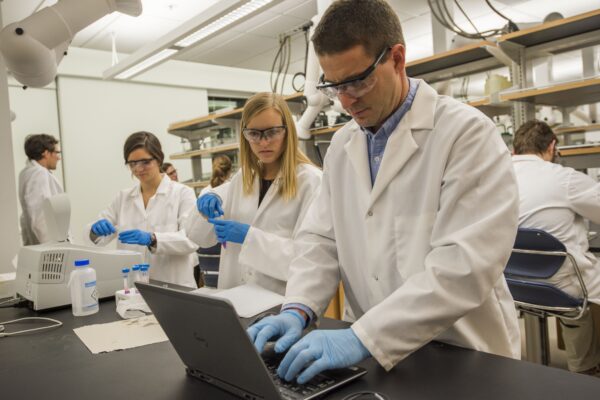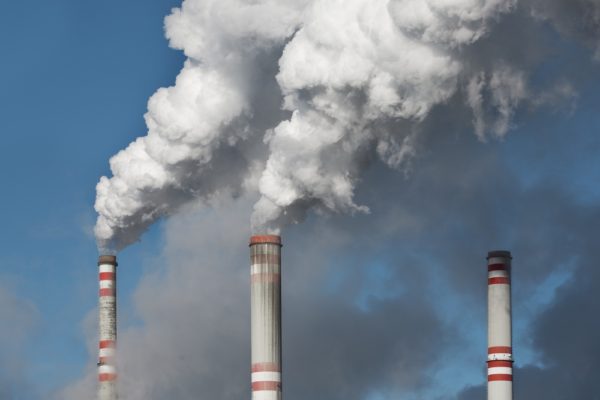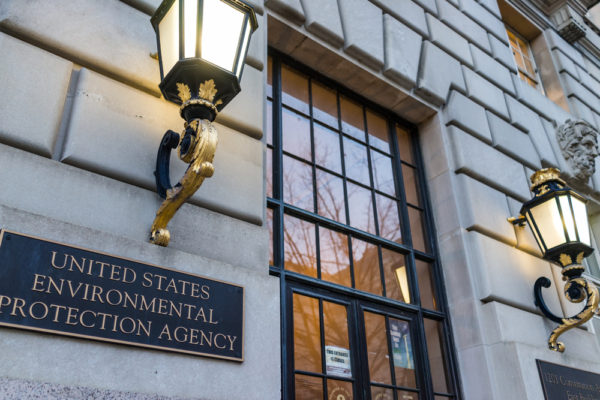McKelvey School of Engineering debuts undergraduate environmental engineering degree
Beginning in the fall of 2019, Washington University in St. Louis will welcome its first cohort of students who will graduate with a bachelor’s degree in environmental engineering. Unlike traditional environmental engineering programs with strong ties to civil engineering, this new degree will have a chemical engineering flavor.
WashU Expert: Energy alliances must be holistic, realistic
In reaction to multiple countries — including Canada, the United Kingdom, France and Italy — announcing at the United Nations climate talks that they’re unifying to phase out coal-generated power by 2030, an environmental engineer at Washington University in St. Louis warned that a “mix of energy sources” is vital for the near future.
WashU Experts: Environmental budget cuts could be ‘grim’
A pair of engineers at Washington University in St. Louis say proposed federal budget cuts to science programs and agencies could signal sweeping changes in the way our nation regulates and researches the environment.
Cleaning chromium from drinking water
An engineer at Washington University in St. Louis has found a new way to neutralize the dangerous chemical chromium-6 in drinking water, making it safer for human consumption.
NTU graduate wins prestigious American fellowship
Wei-Jen Chua, the daughter of Hsiang-Mei Amy Lu and Tony Chua of Taipei, has been named a McDonnell International Scholar at Washington University in St. Louis. She holds bachelor’s and master’s degrees from National Taiwan University, which is one of 15 leading Asian universities partnered with Washington University in St. Louis in the McDonnell International Scholars Academy.
Indian Institute of Technology graduate begins prestigious American fellowship
Monoranjan Sahu, the son of Niasha Sahu and Kalandi Charan Sahu of Orissa, has been named a McDonnell International Scholar at Washington University in St. Louis, and he has received a corporate fellowship from Engineering and Environmental Research Group of Ames, Iowa, U.S.A. He holds a master of technology degree in Environmental Science and Engineering from Indian Institute of Technology, which is one of 15 leading Asian universities partnered with Washington University in St. Louis in the McDonnell International Scholars Academy.
Federal courts decision an important victory in battle to protect public health
Communities exposed to toxic lead emissions recently won an important victory in federal court through a case filed by the Interdisciplinary Environmental Clinic (IEC) at Washington University in St. Louis. “The court chastised the Environmental Protection Agency (EPA) for long-neglecting its duty to review the lead standard every five years, and placed the agency on a firm schedule for conducting the review,” says Maxine I. Lipeles, IEC director and professor of law and engineering. “Because the lead standard must be revised to protect public health, and the existing standard is out of date, we believe that the EPA is virtually required to revise the standard downward. That would help protect children in communities across the country where smelters and other facilities emit significant amounts of lead into the air. The decision should also caution the EPA to act more promptly in reviewing the other five national ambient air quality standards * for nitrogen oxides, ozone, sulfur dioxide, carbon monoxide, and particulate matter.”




